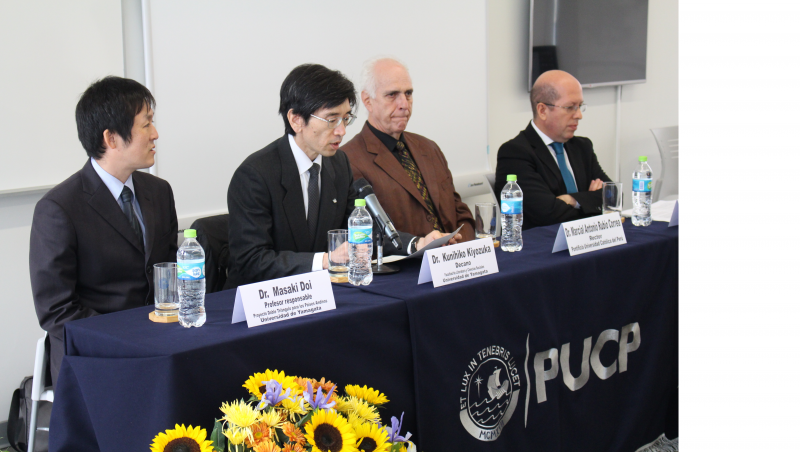
The office was created as a part of the agreement signed between PUCP and Universidad de Yamagata in 2012, in order to establish a facility to develop the Project entitled Double Triangle (Doble Triángulo) between Yamagata University (YU) and the Andean Countries (Peru, Bolivia and Chile), where PUCP, as headquarters for the region, will favor student exchange between these countries. Furthermore, Dr. Masaki Doi, of Universidad de Yamagata, expressed they are trying to train and educate persons who may work in Japan and Latin America and solve current problems, e.g. poverty, and environmental destruction. The inaugural ceremony took place in September 2, and was attended by Dr. Marcial Rubio Correa, president of PUCP, Dr. Carlos Fosca, administrative vice-president of PUCP; Dr. Kunihiko Kiyozuka, dean of the School of Literature and Social Science of YU (Japan); and Dr. Masaki Doi, specialist in Andean anthropology and archaeology, also of that university.
A unique life experience
As a part of the agreement with YU, five students of PUCP traveled to Japan in July to have a study travel and integrate with Japanese, Chinese and Bolivian students. Students were selected through an inter-disciplinary course of undergraduate studies covering Human Development, Environment and Technology, addressed to students from different Schools, taught in the regular semester and established in our University in order to be educated in Japan-related topics. Coordinators are Eng. Ericka Madrid and Dr. Ricardo Sumalavia. We talked to Kelly Ramírez and Jhonny Juárez, two of five students of the School of Science and Engineering who travelled to Japan. For them, participating in seminars on technology, environment and Japanese policy and economics was a rewarding experience. “I’ve learned about economics, politics, culture and, mainly, sustainable development issues. Moreover, we experienced how family living, children education and adult care is. All of this experience helped me to have a more comprehensive view of the world”, Jhonny said.
Moreover, for our students, the travel meant a significant approach to their respective majors. “Experience was really unique. Japanese culture is very different, but it always knows how to control technology issues and environment protection. Furthermore, this program helped me to have an idea about my future major”, Kelly explained.